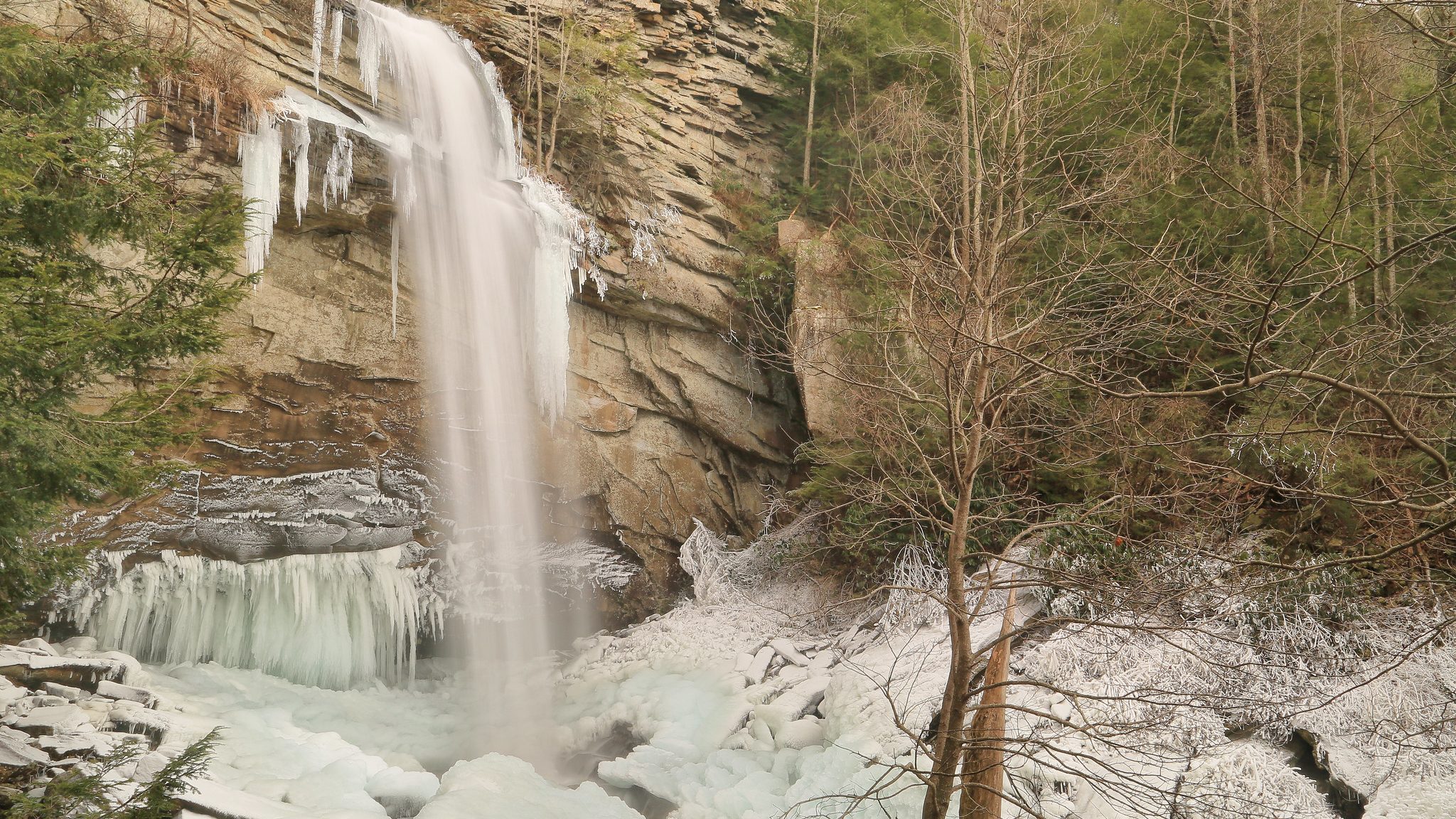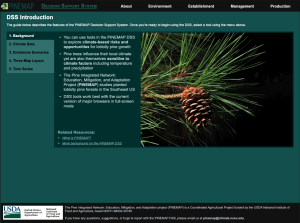November 17, 11am ET: SE CASC Science Seminar on the Development and Evaluation of a Climate Visualization Platform

Join us this fall/winter for a virtual science seminar series highlighting SE CASC funded projects supporting resource management actions across the Southeast. Each month a SE CASC researcher will provide an overview of their work and the management implications of their research findings. Learn more about this series.

Development and Evaluation of a Climate Visualization Platform Supporting Forest Management
Dr. Lindsay Maudlin, Iowa State University
Corey Davis, State Climate Office of North Carolina
November 17 | 11AM ET
View a recording of the seminar.
Webinar Overview:
The PINEMAP Decision Support System (DSS) is a web-based tool developed to help professional foresters assess future climate-based risks and opportunities for planted loblolly pine trees, which are fast-growing, long-lived, and highly effective at carbon sequestration. The PINEMAP DSS uses an innovative interface to display a range of future climate projections for variables of interest, including a three-map layout and a location-specific time series plot. As such, it necessitated an iterative development and usability testing process with stakeholders, forestry extension faculty, and climate scientists to ensure an effective and scientifically sound presentation of climate data. Part of this evaluation included an eye tracking study, which tracked the eye movements of participants as they completed tasks using the PINEMAP DSS and answered multiple-choice questions related to those tasks. In addition to evaluating the overall usability, user factors such as gender, age, experience or content expertise, and performance on the multiple-choice questions were examined to determine if they had any influences on usability. After an initial evaluation (Phase 1), the DSS was updated to correct for the troublesome elements of the DSS, and a second phase (Phase 2) of evaluation took place to test whether the changes led to an increase in usability. View a SE CASC web-post describing the results of this work.
Learn more about the speakers:
 Dr. Lindsay C. Maudlin is an Assistant Teaching Professor of Climate Science in the Department of Geological and Atmospheric Sciences at Iowa State University. In addition to teaching climate-related courses, she recruits, advises, and mentors undergraduate students in a new, interdisciplinary, climate science undergraduate program. Lindsay’s research interests are in Atmospheric Science Education Research, and she specifically focuses on climate literacy in formal and informal education settings. She earned her PhD in Marine, Earth, and Atmospheric Sciences from North Carolina State University, during which time she was a SE CASC Global Change Fellow. View a SE CASC web-post describing the this work, written by Lindsay Maudlin.
Dr. Lindsay C. Maudlin is an Assistant Teaching Professor of Climate Science in the Department of Geological and Atmospheric Sciences at Iowa State University. In addition to teaching climate-related courses, she recruits, advises, and mentors undergraduate students in a new, interdisciplinary, climate science undergraduate program. Lindsay’s research interests are in Atmospheric Science Education Research, and she specifically focuses on climate literacy in formal and informal education settings. She earned her PhD in Marine, Earth, and Atmospheric Sciences from North Carolina State University, during which time she was a SE CASC Global Change Fellow. View a SE CASC web-post describing the this work, written by Lindsay Maudlin.
 Corey Davis is an Assistant State Climatologist at the State Climate Office of North Carolina. His work centers on science communication, including the development of web-based data visualization tools, writing and editing the Climate Blog about recent and past weather events in North Carolina, and presenting to community and professional groups about climate and its hazards. Corey received a Master’s degree in Atmospheric Science from NC State University in 2014, during which time he was a SE CASC Global Change Fellow.
Corey Davis is an Assistant State Climatologist at the State Climate Office of North Carolina. His work centers on science communication, including the development of web-based data visualization tools, writing and editing the Climate Blog about recent and past weather events in North Carolina, and presenting to community and professional groups about climate and its hazards. Corey received a Master’s degree in Atmospheric Science from NC State University in 2014, during which time he was a SE CASC Global Change Fellow.
- Categories:
